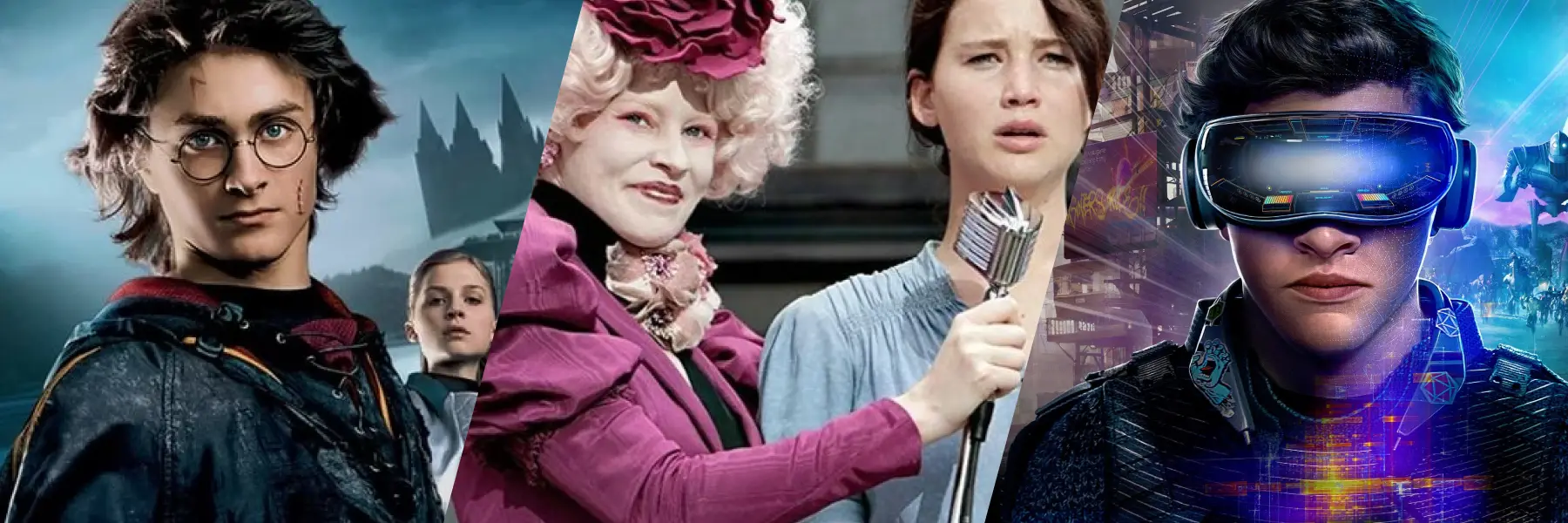In a world where student engagement is crucial for success, educators are constantly seeking innovative…
10 Examples of Drawings and Lotteries in Popular Culture: From Harry Potter to The Hunger Games
Drawings and lotteries have long been fascinating plot devices in popular culture, capturing the imagination of audiences worldwide. These elements, often steeped in chance and fate, are not just about luck; they’re about destiny, choices, and the unpredictable turns of life.
From the mystical halls of Hogwarts to the enchanted factory of Willy Wonka, the drawing of lots has served as a crucial turning point in many beloved stories. We, at Boom Boom Shot, are fascinated by luck, fate and destiny so we thought we could delve into some of the most iconic examples, exploring how these random selections create suspense, shape destinies, and drive narratives forward in the realms of fantasy and beyond.
- Harry Potter and the Goblet of Fire
- Charlie and the Chocolate Factory
- The Hunger Games
- Battle Royale
- Divergent
- The Dark Knight
- The Lottery by Shirley Jackson
- The Cabin in the Woods
- Ready Player One
- The Selection (Book Series by Kiera Cass)
Section 1: The Magic of Chance in Fantasy Worlds
Harry Potter and the Goblet of Fire
In J.K. Rowling’s wizarding world, the Triwizard Tournament in “Harry Potter and the Goblet of Fire” stands out as a prime example of destiny shaped by drawing. The Goblet of Fire, an impartial selector, chooses one champion to represent each of the participating magical schools in a series of life-threatening tasks. However, when young Harry Potter’s name unexpectedly emerges from the Goblet, the story takes a thrilling turn. This drawing not only propels Harry into a dangerous adventure but also unravels a deeper plot woven by dark forces. The Goblet’s selection is a pivotal moment that emphasizes themes of fate, bravery, and the weight of unexpected responsibilities.
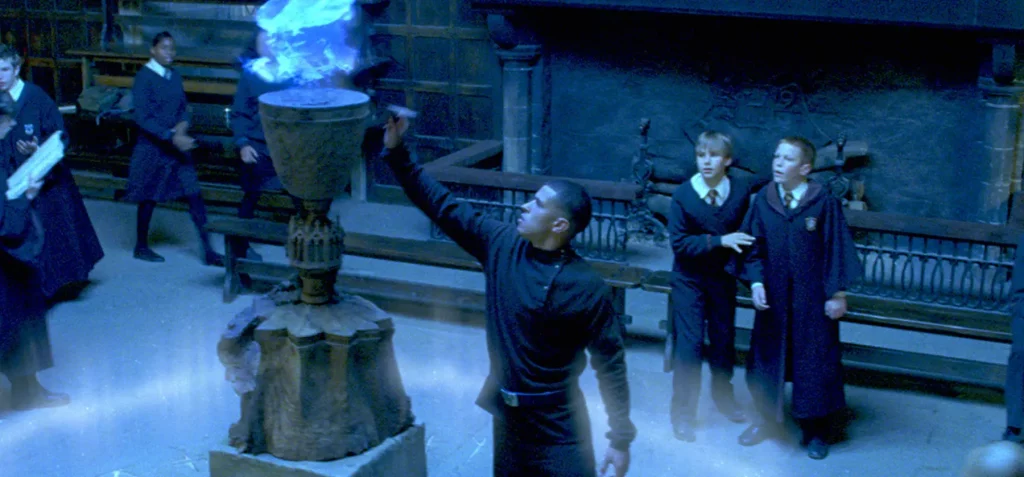
Charlie and the Chocolate Factory
Roald Dahl’s classic tale, “Charlie and the Chocolate Factory,” presents a more whimsical yet equally impactful lottery. The hunt for the Golden Tickets, hidden in chocolate bars, captivates the world. These tickets grant a rare glimpse into the mysterious and marvelous factory of the eccentric Willy Wonka. For young Charlie Bucket, finding a Golden Ticket is more than just a stroke of luck; it’s a life-altering event that leads to extraordinary adventures and, ultimately, a heartwarming turn of fate. This story charmingly illustrates how a simple drawing can be a gateway to a world of wonders and unexpected opportunities.
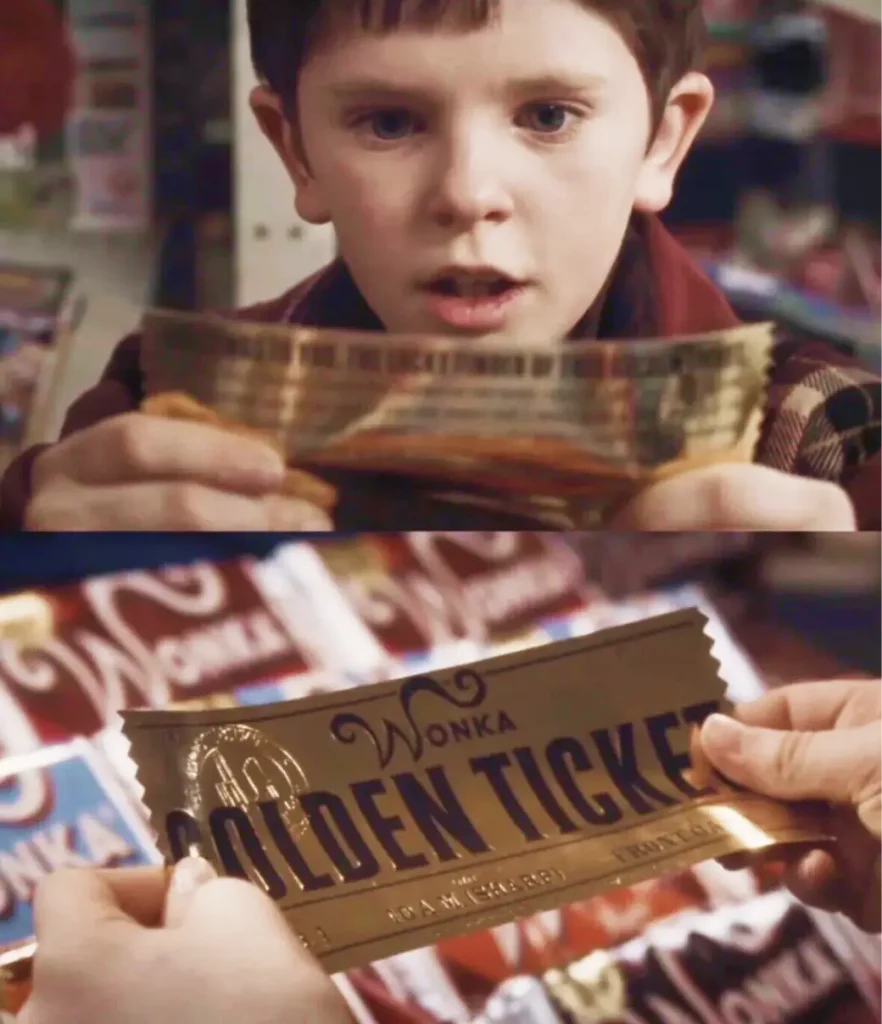
Section 2: Dystopian Realities and Harsh Selections
In the realm of dystopian fiction, drawings and lotteries often take a darker turn, reflecting the harsh realities of the worlds they portray. These selections are more than mere plot devices; they are reflections of societal structures and the struggles of the characters within these oppressive environments.
The Hunger Games
Suzanne Collins’ “The Hunger Games” presents one of the most chilling examples of a lottery in modern literature. The annual Reaping ceremoniously selects one boy and one girl from each district to participate in the Hunger Games – a brutal fight to the death, staged as entertainment and a reminder of the Capitol’s control. The drawing is random, but its impact is deeply personal, as seen through the eyes of protagonist Katniss Everdeen. Her voluntary substitution for her younger sister in the Games is a poignant moment that sets the stage for rebellion. The Reaping in “The Hunger Games” is a powerful symbol of oppression and the sparks of resistance it can ignite.
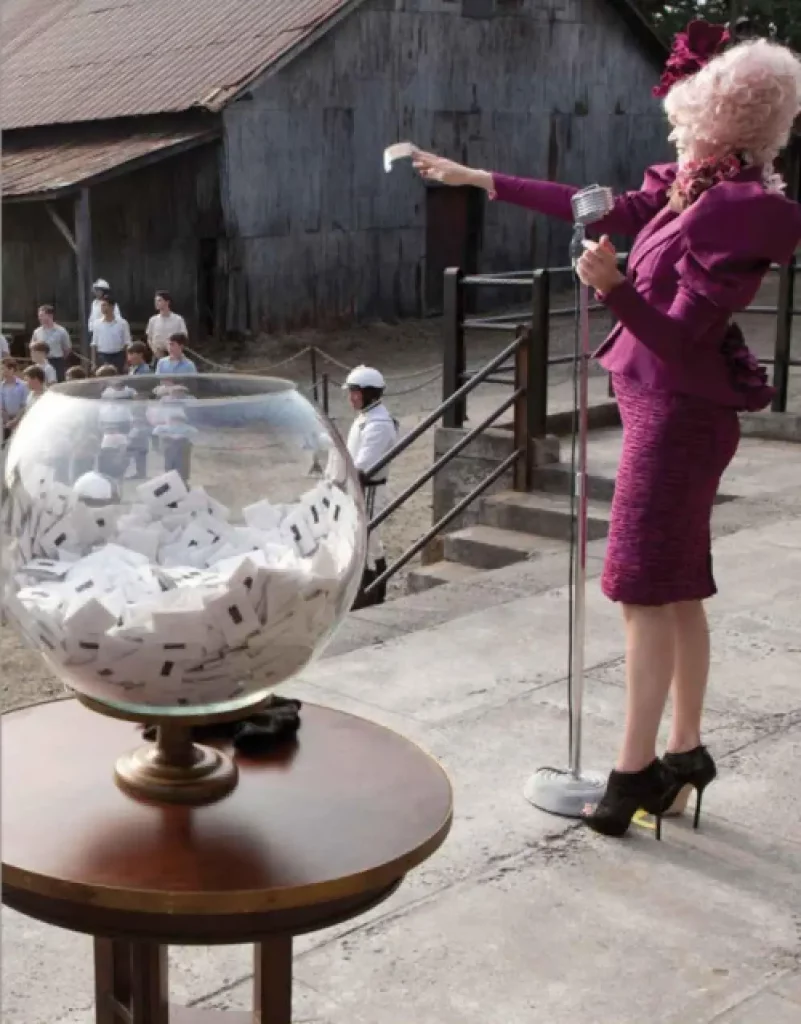
Battle Royale
Before “The Hunger Games,” there was Koushun Takami’s “Battle Royale,” a novel (later adapted into a film) that thrusts a class of Japanese high school students into a government-mandated fight to the death. The selection is random, but the outcome is anything but. The students’ varied reactions to their forced participation – from horror and resistance to strategic manipulation – offer a gripping exploration of human nature under extreme duress. “Battle Royale” presents the lottery as a tool of government control, posing stark questions about authority, morality, and survival.
Divergent
Veronica Roth’s “Divergent” series introduces a different kind of selection: the Choosing Ceremony. In a society divided into factions, this ceremony is a rite of passage where individuals choose their faction – and, by extension, their identity and role in society. While not a random drawing, the element of choice carries the weight of a lottery, with each decision sealing a character’s fate and testing their allegiance. The Choosing Ceremony underscores themes of identity, conformity, and the courage to defy societal expectations.
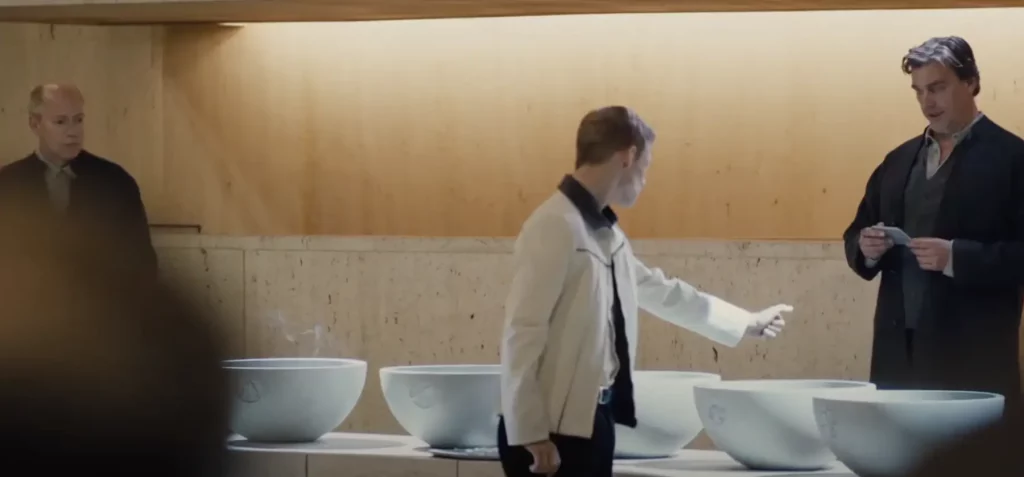
Section 3: Dark Twists and Unconventional Lotteries
In certain stories, the idea of a drawing or lottery is twisted into something more sinister or is used in unconventional ways, adding layers of complexity and moral ambiguity to the narrative.
The Dark Knight
In Christopher Nolan’s “The Dark Knight,” the Joker engineers a twisted version of a lottery, where passengers on two ferries are given the power to decide each other’s fate. Each group can choose to destroy the other to save themselves, turning a simple drawing into a grim test of human nature and morality. This scenario forces the characters, and the audience, to confront unsettling questions about society, morality, and the choices people make under extreme pressure.

The Lottery by Shirley Jackson
Shirley Jackson’s short story “The Lottery” offers a harrowing take on a small town’s annual tradition. The story builds up to a shocking and brutal climax, where the ‘winner’ of the lottery faces a terrifying fate. Jackson masterfully uses the lottery as a metaphor for the unquestioned rituals and violent tendencies embedded within society. The story’s unsettling ending forces readers to ponder the dangers of conformity and the dark side of human nature.
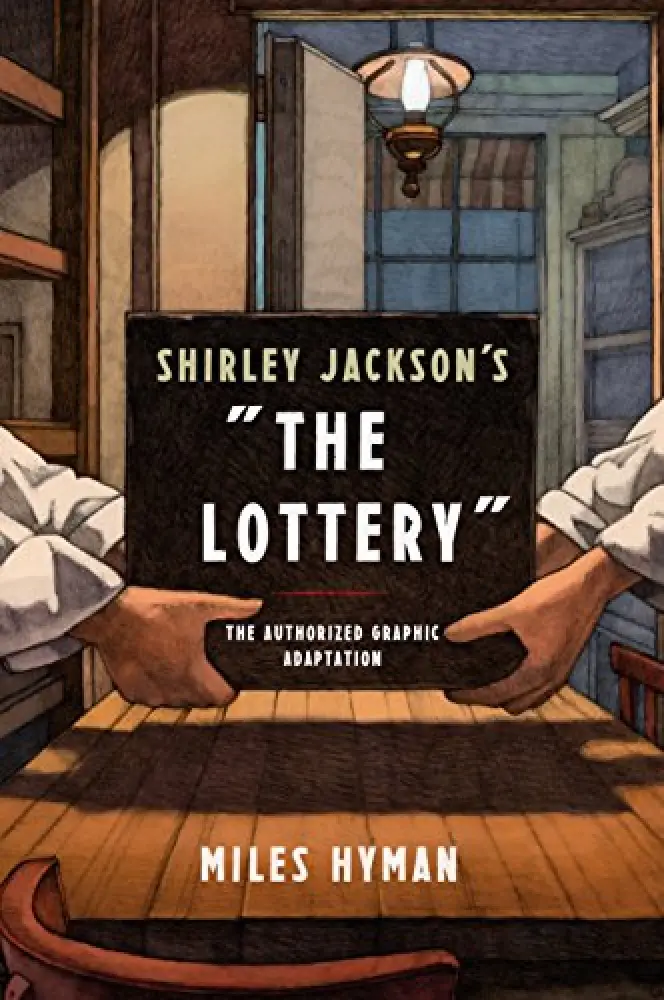
The Cabin in the Woods
In the film “The Cabin in the Woods,” a group of friends unknowingly participates in a lottery of sorts, selecting their fate from an array of objects in a cellar. Each object triggers a different scenario, all controlled by a secret organization. This twist on the traditional lottery concept cleverly satirizes horror movie tropes and explores the idea of free will versus predestined outcomes. The film blurs the line between the characters’ choices and the manipulations of those behind the scenes, creating a unique commentary on the nature of horror storytelling.
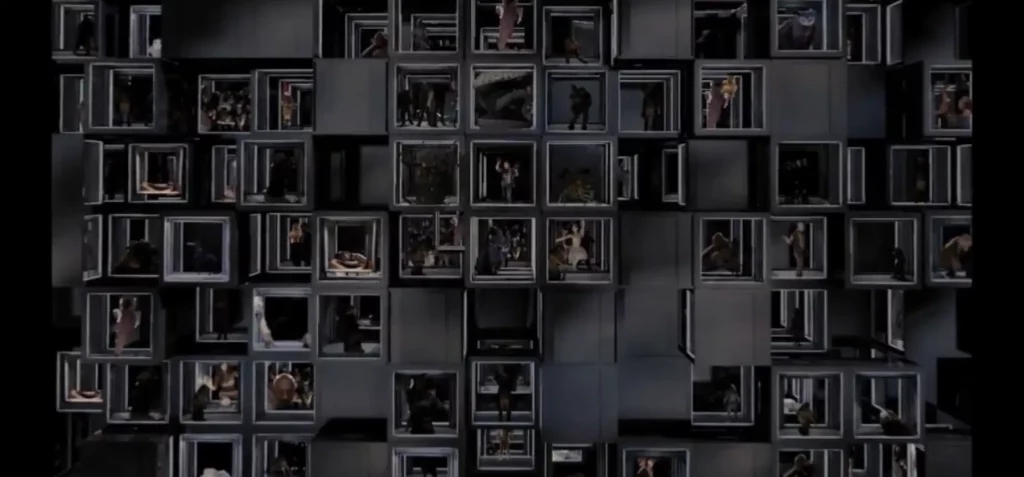
Section 4: Competitions and Games of Skill
Beyond traditional lotteries, some narratives incorporate competitions and games of skill, which, while not entirely based on chance, still capture the lottery’s essence of unpredictability and high stakes.
Ready Player One
Ernest Cline’s “Ready Player One” (adapted into a film by Steven Spielberg) introduces a futuristic virtual reality scavenger hunt. The competition to find an Easter egg, hidden by the creator of the virtual world, is akin to a high-tech lottery. Participants must decipher clues and demonstrate gaming prowess, blending luck with skill. This quest, while not a random drawing, holds the same allure and life-changing potential as a traditional lottery, with the winner gaining immense wealth and control over the virtual world.

The Selection (Book Series by Kiera Cass)
“The Selection” series by Kiera Cass presents a lottery where young women are chosen to compete for a prince’s heart, reminiscent of reality TV dating shows. While elements of choice and personal agency are present, the random nature of the initial selection and the high stakes involved echo the classic lottery theme. The series explores themes of love, societal expectations, and the struggle for individuality within the confines of a rigid competition.

Conclusion
Drawings, lotteries, and similar selection methods in literature and film are more than just plot mechanisms; they are mirrors reflecting the complexities of fate, choice, and human nature. Whether it’s the whimsical charm of a Golden Ticket in “Charlie and the Chocolate Factory,” the harrowing choices faced in “The Dark Knight,” or the blend of skill and chance in “Ready Player One,” these narratives utilize the concept of selection to delve into deep and often challenging themes.
They compel us to question our values, our society, and our destiny, reminding us that sometimes, the most significant turns in our lives can hinge on a simple moment of chance. These stories captivate us not just because of their suspenseful plots, but because they resonate with the unpredictable nature of our own lives, where every day can bring a new draw, a new challenge, or a new opportunity.
Sometimes, the most significant turns in our lives can hinge on a simple moment of chance.
In the end, the true allure of these stories lies in their exploration of the human condition, our response to the unknown, and our enduring fascination with the question: “What if it were me?” As we turn the pages or watch these tales unfold on screen, we’re reminded of the power of chance, the thrill of the unknown, and the endless possibilities that life offers.
Integrating Boom Boom Shot
In the spirit of these captivating tales of chance and choice, why not bring a touch of this excitement to your own events? Boom Boom Shot offers a modern, digital twist to the traditional concept of drawings and lotteries. Whether you’re organizing a party, a corporate event, or any gathering, Boom Boom Shot can infuse it with the thrill of random selection and competition. With its user-friendly interface and customizable features, it’s an ideal way to engage guests, create memorable moments, and perhaps even change someone’s day for the better.
Whether you’re organizing a party, a corporate event, or any gathering, Boom Boom Shot can infuse it with the thrill of random selection and competition.
Just as the characters in our favorite stories are swept into adventure by the draw of a lot, your guests can experience the same excitement and anticipation, courtesy of Boom Boom Shot.
So, why not try it at your next event and see how a simple game of chance can transform the ordinary into something extraordinary?
The Boom Boom Shot team 🤗

